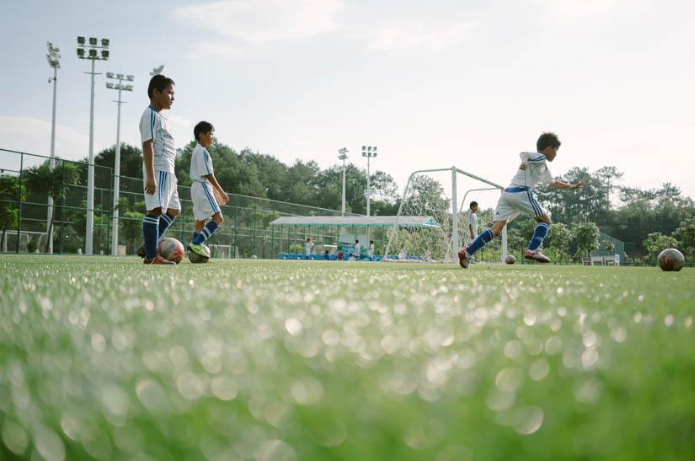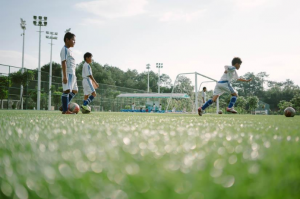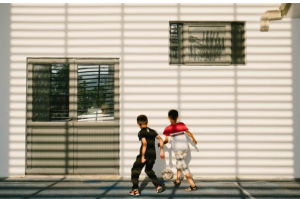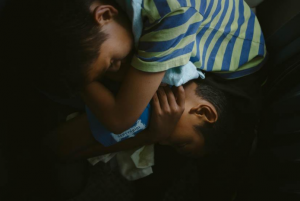Goal Far Afield for Young Uyghur Footballers

Sixth Tone, 30 November 2016

By Liu Yuyang — In Guangdong province, water is never far away. Even if it’s not raining, the air will still be damp, and every part of the R&F Soccer School — the floors, the windows, the walls — is constantly covered in drops of water.
On one of the school’s fields, team 06A is running across the wet AstroTurf. Among the young players is 8-year-old Muradil. Here, in China’s south, he is far from home. Muradil comes from Gulja, a city in northwest China’s Xinjiang Uyghur Autonomous Region, close to the border with Kazakhstan.
Muradil dreams big. “I want to go to Brazil to play soccer, and I want to be a star. My idol is Messi,” he says, as his gaze slides from his bright orange cleats to the surrounding fields. He has come to the right place. R&F Soccer School is located in the city of Meizhou, referred to as China’s “home of soccer.” The second-largest soccer school in the province, R&F proudly professes to “train the new generation of soccer kings.” In addition to regular classes, students spend about 13 hours a week perfecting their soccer skills.

The school recruits from far and wide. Besides Muradil, there are about 20 other pupils from Xinjiang. One of the teachers, Coach Abdukirim, is himself Uyghur and used to play in the Chinese Super League. At the school, he serves as a scout of sorts for his home region. Teachers at regular schools throughout Xinjiang will tell him about promising prospects, and Abdukirim will invite the young players to Guangdong.
Tuition at the school costs about 20,000 yuan ($2,900) per year, but a deal brokered by Abdukirim allows Uyghur children to attend for free. For the pupils, enrolling at R&F is a dream come true, but it also means moving about as far away from home as they possibly can without leaving the country. They have to adapt to a new climate, different food, and life without their parents. The youngest of the Uyghur students is just 7 years old.

Muradil has noticed plenty of differences between his old life and his new surroundings: “In second grade, students in Xinjiang will not learn English, but students in Guangdong have learned it very well already. It rains a lot here. I miss the food at home and spending the holidays with my parents,” he says.
Fifth-grader Husan is 12 and comes from Karamay in Xinjiang. He says he used to cry in secret during his first week at the school, but he has since adapted to life in Guangdong. “I can speak Mandarin and English well, and I have made friends with many local children,” he says.

In the adult world, Uyghurs do not always enjoy a positive reputation among other ethnic groups, and violent incidents in recent years haven’t helped allay the mistrust. At the R&F Soccer School, the Uyghur players sometimes have a hard time fitting in. Many arrive speaking subpar Mandarin, and in the heat of the game, miscommunications can turn violent, such as when Coach Abdukirim had to separate 9-year-olds Halit and Qiaofeng after they ran into each other during a game.
Just as the young players from Xinjiang must adapt to their new environment, Coach Abdukirim says he hopes their presence will clear up misconceptions about Uyghurs. “It is not easy for these children,” he says.
This story is part of the Magnum Foundation’s “What Works” project.
(Header image: Twins Husan and Hasan listen to a coach’s speech after nighttime training at R&F Soccer School in Meizhou, Guangdong province, March 17, 2016. Liu Yuyang for Sixth Tone)
http://www.sixthtone.com/news/goal-far-afield-young-uyghur-footballers

